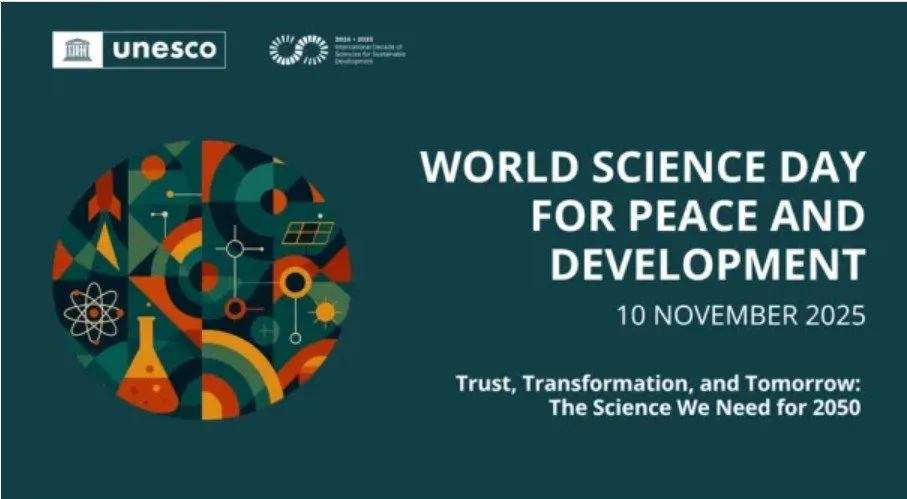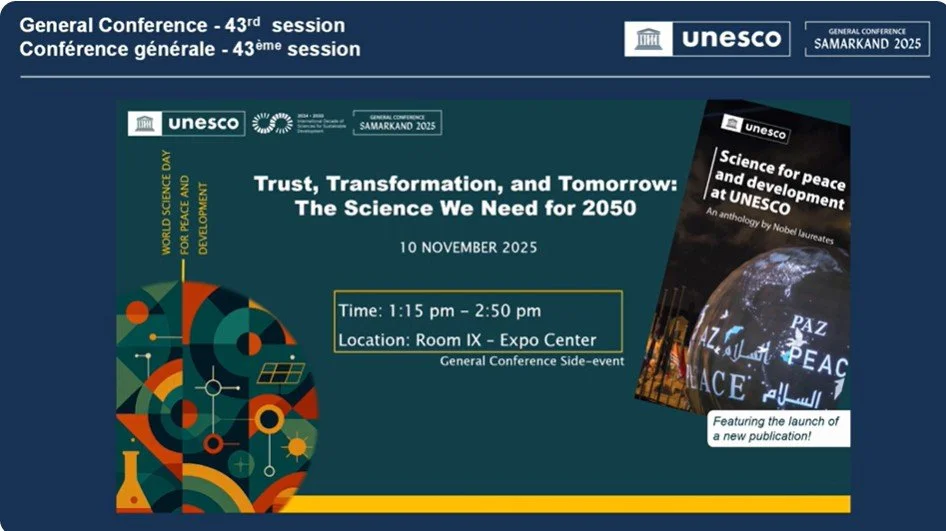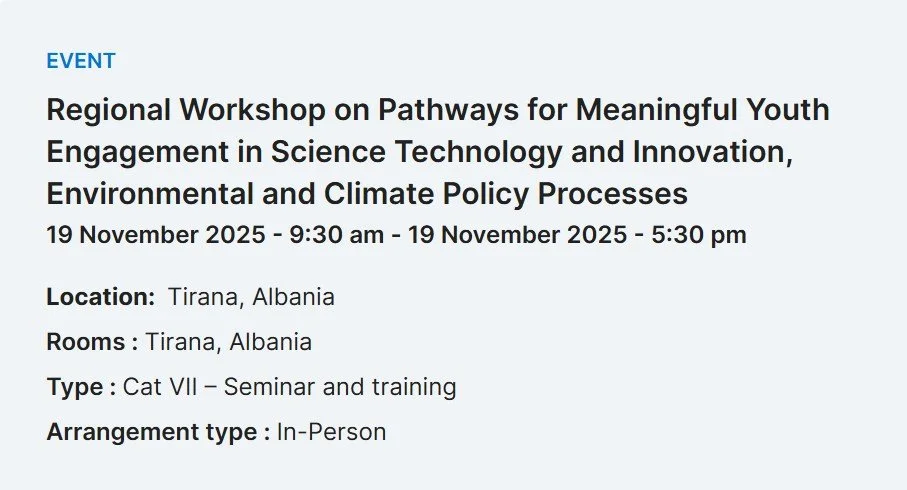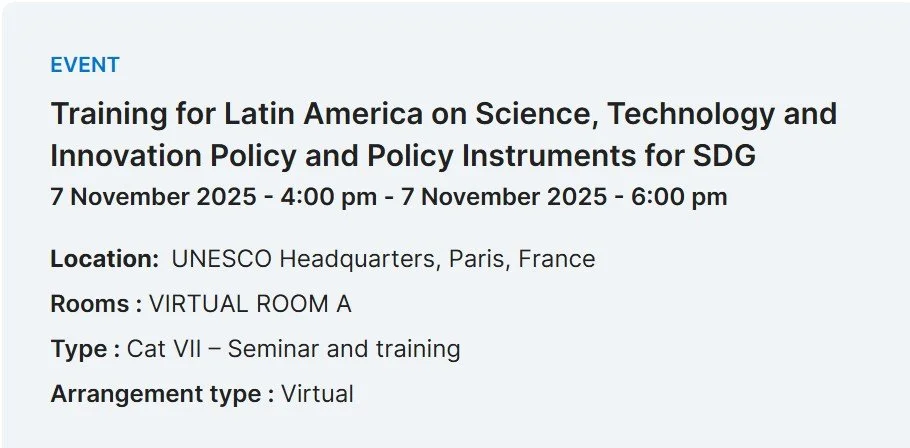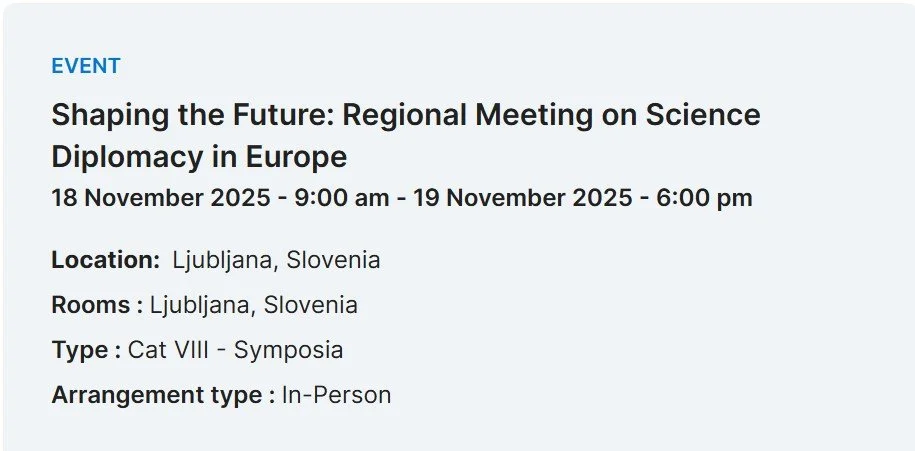PURPOSE: The objectives of World Science Day for Peace and Development are to Strengthen public awareness on the role of science for peaceful and sustainable societies; to Promote national and international solidarity for shared science between countries; to Renew national and international commitment for the use of science for the benefit of societies to Draw attention to the challenges faced by science and raising support for the scientific endeavour toInvesting in Science. Different activities will be undertaken to mobilize support for the objectives of the World Science Day for Peace and Development. The launch of the Decade of Sciences marks an important step in global efforts to harness scientific knowledge for a sustainable future. Led by UNESCO, this Decade aims to mobilize a wide range of scientific disciplines, including basic and applied sciences, social and human sciences, as well as interdisciplinary and emerging fields, to contribute to transformative change in societies, economies, and the environment. By promoting scientific literacy and encouraging collaboration among governments, UN agencies, the private sector and civil society, the Decade seeks to enhance science’s role in pursuing sustainable development goals and working towards a safer, more prosperous future for all.
FORUM: "Trust, Transformation, and Tomorrow: The Science We Need for 2050." World Science Day for Peace and Development 2025. Join us live from the 43rd session of the UNESCO General Conference as we celebrate the day with a forward-looking conversation on the future of science. This event invites participants to reflect on what kind of science—and what kind of relationship between science and society—will be needed to meet the demands of the coming decades. Together, experts and policymakers will envision the scientific and societal landscape of 2050 and discuss how science can shape a more just, sustainable, and peaceful future. The General Conference is UNESCO’s highest decision-making body, gathering delegates from all 194 Member States every two years to set the Organization’s global priorities and guide its actions for peace, inclusion, and sustainable development. Through this dialogue, UNESCO reaffirms its leadership as the foundation of global scientific cooperation and the driving force behind the Science Decade for Action. To join the global conversation on the science we need for 2050; Follow the conversations with the hashtags: #Science4Policy, #sciencematters, #ScienceDay, #10November, #sustainableDevelopment, #WorldScienceDayforPeaceandDevelopment.
EVENTS: On November 10th; 2025 from 1:15 pm - 2:50 pm, at the Room IX - Delegates Meeting Room 3 in Uzbekistan will celebrate the World Science Day for Peace and Development 2025 during the 43rd session of the UNESCO General Conference in Samarkand, Uzbekistan. Organized under the umbrella of the International Decade of Sciences for Sustainable Development (2024–2033), this event celebrates World Science Day for Peace and Development by fostering forward-looking dialogue on the evolution of science and its role in shaping a just, sustainable, and peaceful future. The Participants will be invited to envision the scientific and societal landscape of 2050 and reflect on, and make informed forecasts about, the evolving role of science in shaping a more just, sustainable, and peaceful future. Participants will consider how feasible this may be and what changes are required to achieve it. It will explore the foundations of a renewed social contract with science, one anchored in public trust, diversified funding sources, a transformed scientific paradigm, open science practices, ethical responsibility, and inclusive engagement. The Key discussion themes will be about:
Disruptive technologies and the future of research: How artificial intelligence and emerging innovations are redefining the scientific paradigm.
A renewed social contract with science: Building trust through transparency, ethics, open science, and inclusive participation.
Envisioning science in 2050: Science as a driver of sustainability and peace.
Agenda Programme
13:15 – 13:20 Opening remarks by Ms Lidia Brito, Assistant Director-General for Natural Sciences of UNESCO. 13:20 – 13:35 Keynote speech.
A renewed social contract with science.
Ms Dilfuza Egamberdieva, Head of the Department of Biological Research and Food Safety at the Institute of Fundamental and Applied Research, National Research University, Uzbekistan.
13:35 – 13:50 International Decade of Sciences for Sustainable Development presented by H.E. Ms Monique van Daalen, Co-Chair of the International Decade of Sciences for Sustainable Development and Ambassador of the Netherlands to UNESCO
13:50 – 14:40 Panel discussion
The evolving role of science in shaping the future and a renewed social contract with science.
International Decade of Sciences for Sustainable Development (2024-2033)
Engagement and trust in science.
Scientific paradigm transformation with applications of AI and other disruptive technologies.
The gender gap in science.
The role of the private sector in science.
Q & A.
14:40 – 14:50 Closing remarks by H.E. Mr Samir Addahre, Chair of the Science Commission and Ambassador of the Kingdom of Morocco to UNESCO.
On November 10th and during the International week of Science 2025, several activities, workshops and experiments will be held; Explore the International Council of Science (ICS) upcoming meetings and the AAAS upcoming events.
PUBLICATIONS: Read the The UNESCO standard-setting instruments: the Recommendation on Science and Scientific Researchers (2017) and the Recommendation on Open Science (2021). These instruments articulate a vision where science ecosystems are driven by universal values and aim at making science and its benefits accessible to all.
STATEMENTS: Read the Message from Ms Audrey Azoulay, Director-General of UNESCO, on the occasion of World Science Day for Peace and Development, 10 November 2025..
PODCASTS: In the context of the International Year of Basic Sciences for Sustainable Development (2023); Let’s highlight the importance of Building trust in science. Listen to the audio-podcasts!
CAMPAIGN MATERIALS: The WSDPD2025 poster is available in six languages (English ,Français, Español, Русский язык, لعربية, 汉语). Please feel free to share it with your networks. Get the communication materials!
WHY WE CELEBRATE THE DAY?
HOW TO GET INVOLVED!
PARTNERSHIPS
Since its proclamation by UNESCO in 2001, World Science Day for Peace and Development has generated many concrete projects, programmes and funding for science around the world. The Day marks an occasion to mobilize all actors around the topic of science for peace and development – from government officials to the media to school pupils.
The UNESCO Recommendation on Science upholds the principles of the Universal Declaration of Human Rights - that everyone has the right to participate in and benefit from science - and provides a useful checklist of political and institutional requirements to ensure access to science education, and fundamental rights such as the right to be a scientists, to protect intellectual property, to share scientific advancements and accademic freedom.
By linking science more closely with society, science is made accessible to all and broadens our understanding of the remarkable, fragile planet we call home. It becomes also a more solid stepping-stone towards making our societies more sustainable. The Day has also helped foster cooperation between scientists living in regions marred by conflict, one example being the UNESCO-supported creation of the Israeli-Palestinian Science Organization (IPSO).
Basic research is driven by curiosity. Also known as discovery research, owing to its emphasis on the quest for knowledge rather than commercial applications, basic research has led to breakthroughs that have spawned not only new technologies but even entirely new fields of science like genomics. Some of these discoveries were even accidental!
From the universe expanding to the phones in our pockets, science is everywhere., The celebration helps us remember this fact and offers an opportunity for everyone to engage in scientific debates and activities.
Strengthen public awareness of the role of science for peaceful and sustainable societies
Promote national and international solidarity for shared knowledge and scientific cooperation
Renew national and international commitment for the use of science for the benefit of societies
Draw attention to the challenges faced by science and raising support for scientific endeavours
Make Science accessible to all
Mobilize all actors around the topic of science for peace and development
Link science more closely with society
Highlight the significant role played by basic sciences in advancing knowledge
Foster cooperation between scientists
Organize, workshops, seminars and exhibits with the participation of Civil Society Organizations, Scientific Boards, Science council and societies, Non-Governmental Organizations; Scientists, Biologists, Medical Researchers, Environmentalists, climatologists, Zoologists and the academia.
The World Science Day for Peace and Development is hosted by the UNESCO, the International Science Council (ISC), the World Federation of Public Health Associations, the World Forestry Congres, the World Health Organizatio (WHO), the World Meteorological Organization (WMO), the United Nations Intergovernmental Panel on Climate Change, the Soil Science Society of America, the Society of Biology (UK), the Society for Ecological Restoration International, the Society for Industrial and Applied Mathematics, the Russian Academy of Sciences, the Science and Technology, Australia, the Science Council of Japan, the Scientific Committee on Antarctic Research, the Scientific Committee on Solar-Terrestrial Physics, the Scripps Institution of Oceanography, the Pew Center on Global Climate Change, the Oklahoma Climatological Survey, the Organization of Biological Field Stations, the New York Academy of Sciences, the Nicaraguan Academy of Sciences, the Nigerian Academy of Sciences, the National Institute of Water & Atmospheric Research, New Zealand, the National Oceanic and Atmospheric Administration, the National Research Council, the National Science Foundation, the Natural Environment Research Council, UK, the Natural Science Collections Alliance, the National Academy of Sciences, United States of America, the National Aeronautics and Space Administration, the National Association of Geoscience Teachers, the National Association of State Foresters, the National Center for Atmospheric Research, the National Council of Engineers Australia, International Council of Academies of Engineering and Technological Sciences, the International Research Institute for Climate and Society, the International Union for Quaternary Research, the International Union of Geodesy and Geophysics, the International Union of Pure and Applied Physics, the Islamic World Academy of Sciences, the Israel Academy of Sciences and Humanities and many others.

